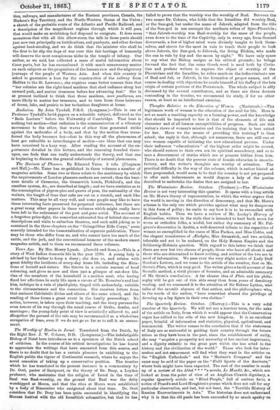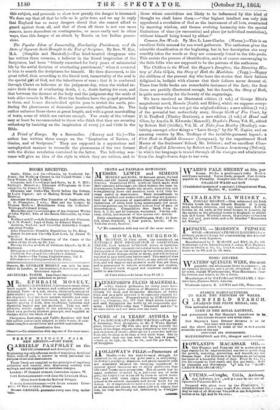The Quarterly Review. October. (Murray.)—This is a very solid number
of the Quarterly. We will not use a harsher term, for the sake of the article on Italy, from which it would appear that the Conservative organ has rallied to the side of the now kingdom. It is an excellent paper, brimful of information and statistics, physical, agricultural, and Commercial. The writer comes to the conclusion that if the statesmen of Italy are as sucitessful in guiding their country through the future *rises as they have been in the past, since the establishment of unity,, she may "acquire a prosperity not unworthy of her ancient importance, and a dignity suitable to the great part which she has acted in the history and the civilization of the world." Those who look for infor- mation and not amusement will find what they want in the articles on the "English tlathedrals" and the "Mariner's Compass;' and the same may be said of the paper on the "Field Sports of the Ancients," where both might have been expected. The rest of the number is made up of a review of the Abb4 * • • 'a's novels, Le Maudit, Sze., which are looked at from the point of view of an Anglican Church dignitary, a regular Quarterly article on "Blind People," full of curious facts, a notice of Praed's and Lord Houghton's poems which does not call for any particular observation, and last, but not least, the "Terrible History of Russian Encroachments in Asia." The historian does not understand. why it is that the old panic has been succeeded by so much apathy on this subject, and proceeds to show how greatly the danger is increased. We dare say that all that he tells us is quite true, and we say in reply that England has so many dangers ahead that she cannot afford to guard against them all, and that of them all there is not one more remote, more dependent on contingencies, or more easily met in other ways, than this danger of an attack by Russia on her Indian posses- sions.































 Previous page
Previous page